Advanced Variant Prices v.13
The tool to configure variant prices based on attributes coefficients and surpluses
Advanced formula to calculate variant price
- Add an extra price for any attribute value of this product template. For instance, plus 5 Euro if color of iPad is red
- Assign a multiplier to a template attribute value: 10% extra if size of Ipad is 12.9'
- Define independent product variant extra price. E.g. iPad 12.9' 64GB needs an extra 100 Euros in addition to attributes coefficients
- Define values' sequence to apply coefficients priorities: firstly screen size impact, then memory, finally color.
Pricing Formula
The pricing formula is [ [(PRODUCT TEMPLATE PRICELIST PRICE + ATTRIBUTE 1 EXTRA PRICE) * (100+ATTRIBUTE 1 MULTIPLIER)/100 + ATTRIBUTE 2 EXTRA PRICE] * [100+ATTRIBUTE 2 MULTIPLIER]/100 + ATTRIBUTE 3 EXTRA PRICE ] * .... + OWN VARIANT SURPLUS
Price calculation example
- Your product is "Ice Cream", which sale price is $5
- It has 2 attributes - "Flavour" and "Mode"
- The flavour may be "Chocolate", "Vanilla" or "Strawberry". While the first 2 do not influence costs, the latter make you put fresh fruits. That's why you decide to make a price extra of $1
- You have 2 ice cream modes: "Standard" and "Premium". The latter means you are using premium milk, which costs 20% more than ordinary one. Hence, you assign 20% multiplier to this attribute
- Since flavour doesn't influence mode at all, you decide to order attributes as "Mode, Flavour"
- Then, the price of "Ice Crem, Premium, Strawberry" will be calculated as [($5 + 20%) + $1] = $7
- Be cautious: if you decided to order attributes in the opposite way the price of "Ice Crem, Premium, Strawberry" will be [($5 + $1) * (1+20%)] =$7,2
- Add a special extra for the product "Ice Cream, Premium, Strawberry" on its form - $2. Thus, the price would be $9
Screenshots
Configure price calculations on a template form
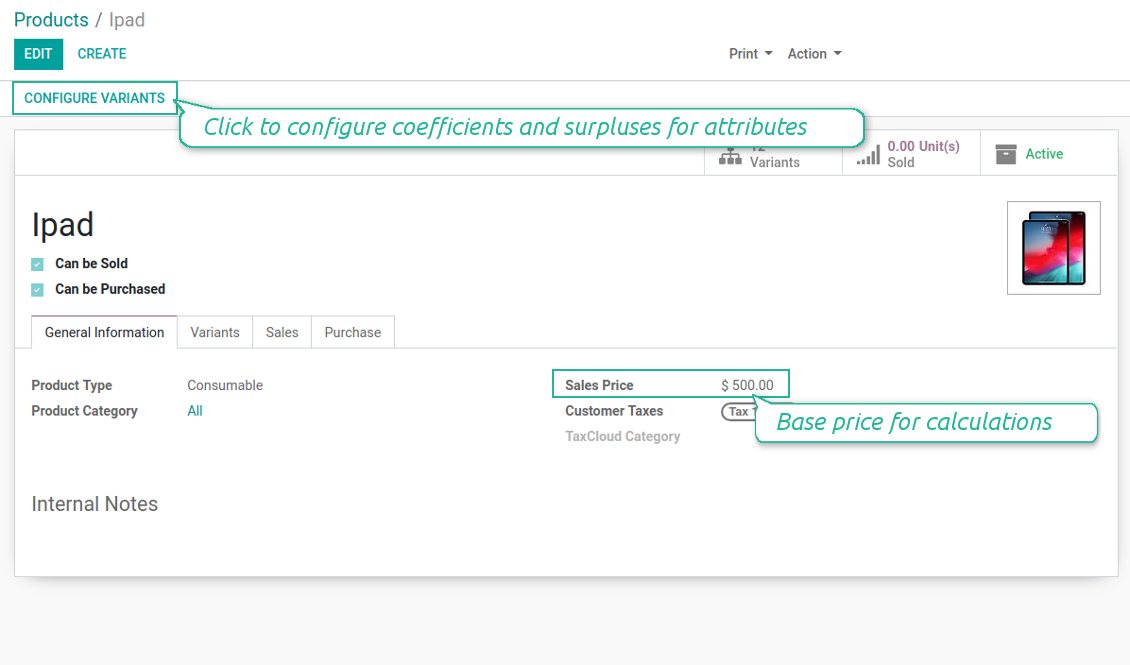
Assign coefficients and surpluses per attribute values
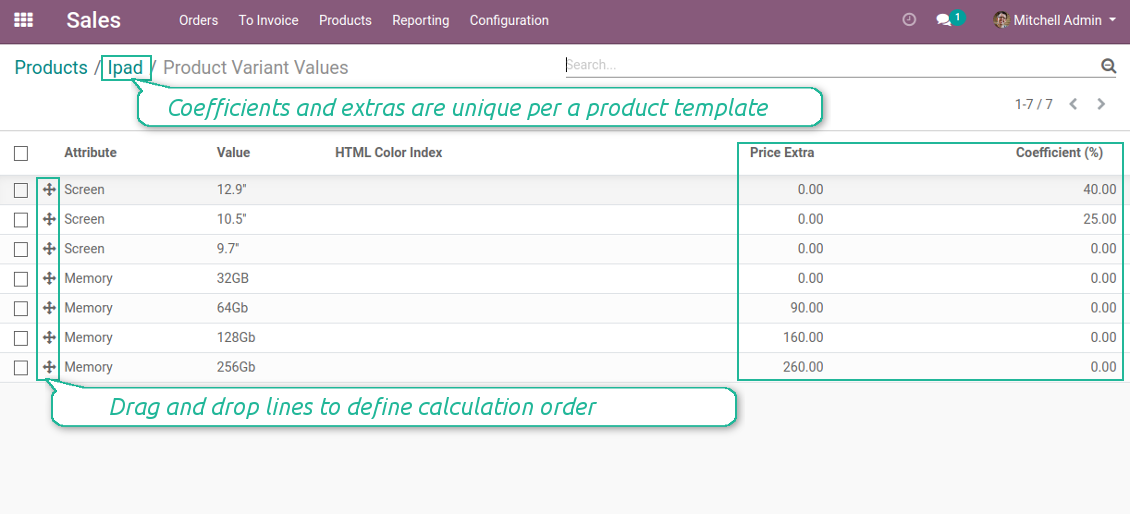
Variant might have an own extra price beside calculations
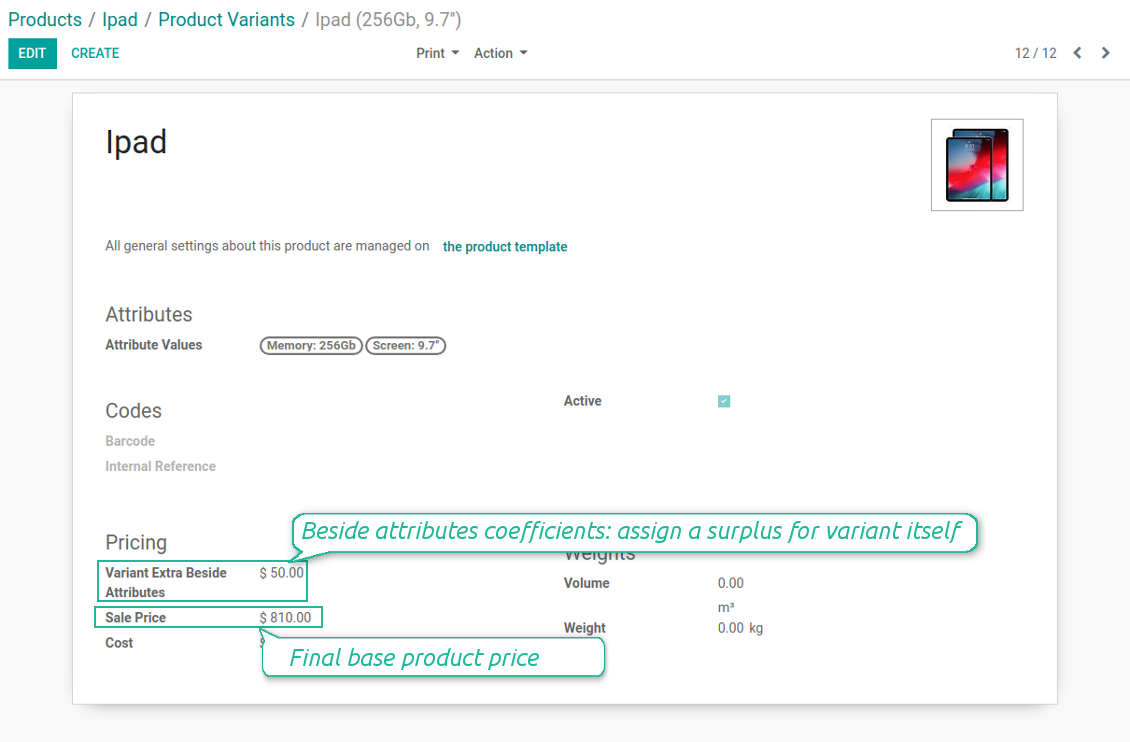
Each product variant has a unique calculated price
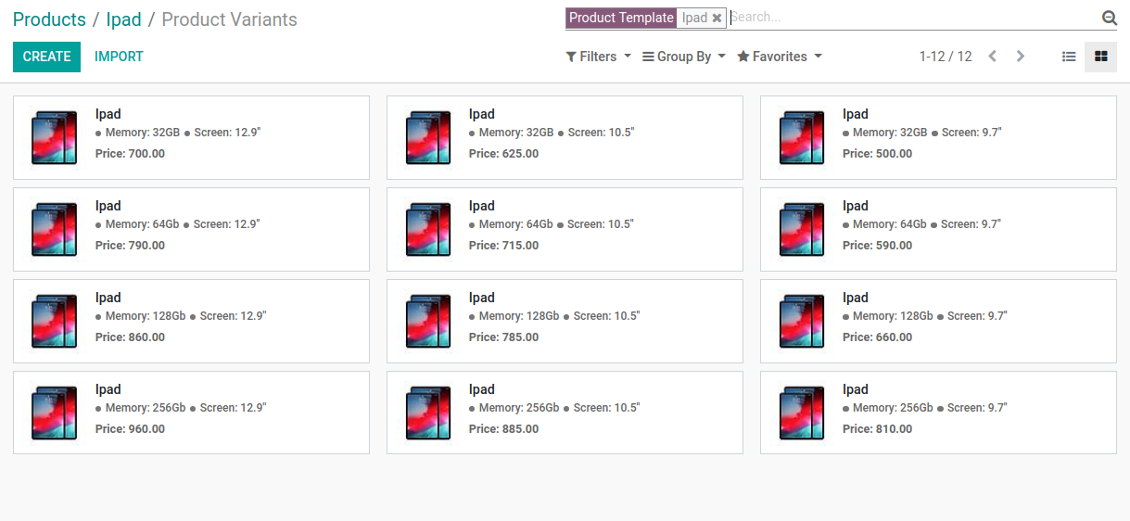
Different attributes coefficients for different product templates
The final price is calculated successively attribute by attribute: the order is important! Drag and drop lines to change sequence.
Compatibility with the Odoo product configurator
Screenshots
Variant price in Odoo 13 product configurator
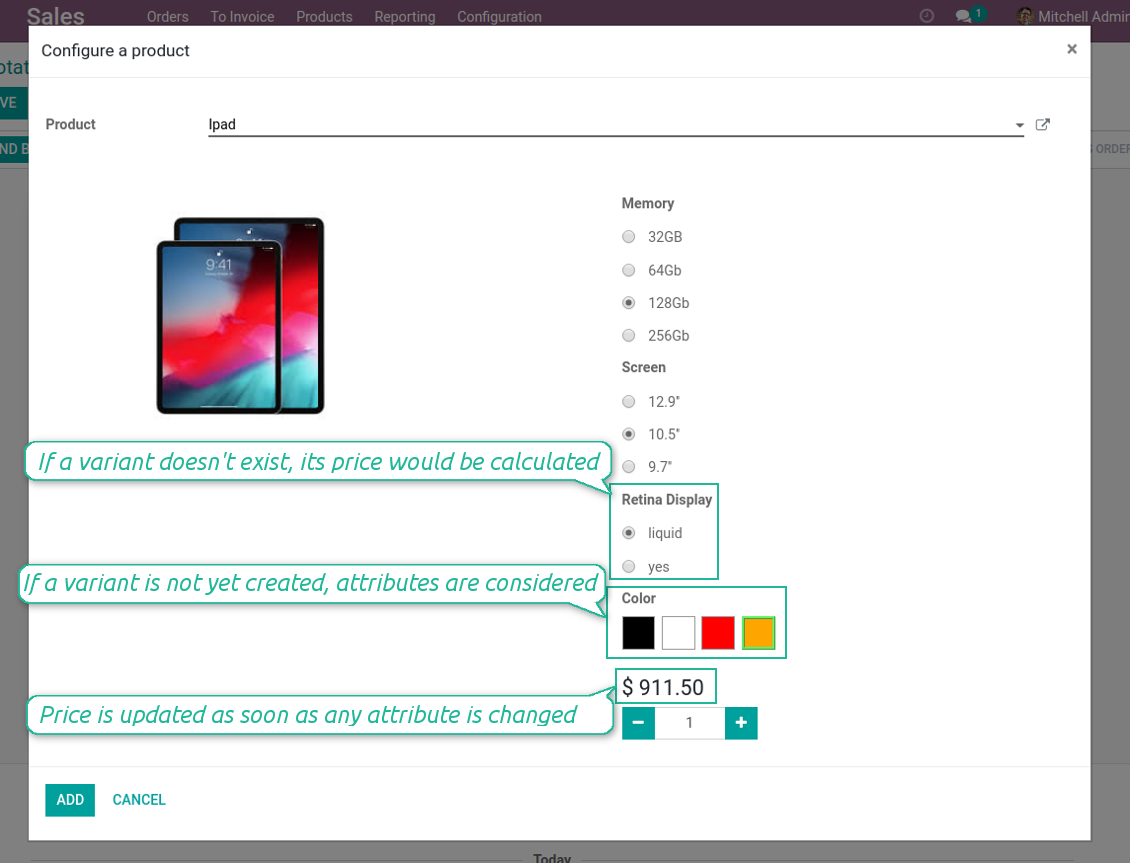
Even 'to create' and 'never created' attributes might influence pricing
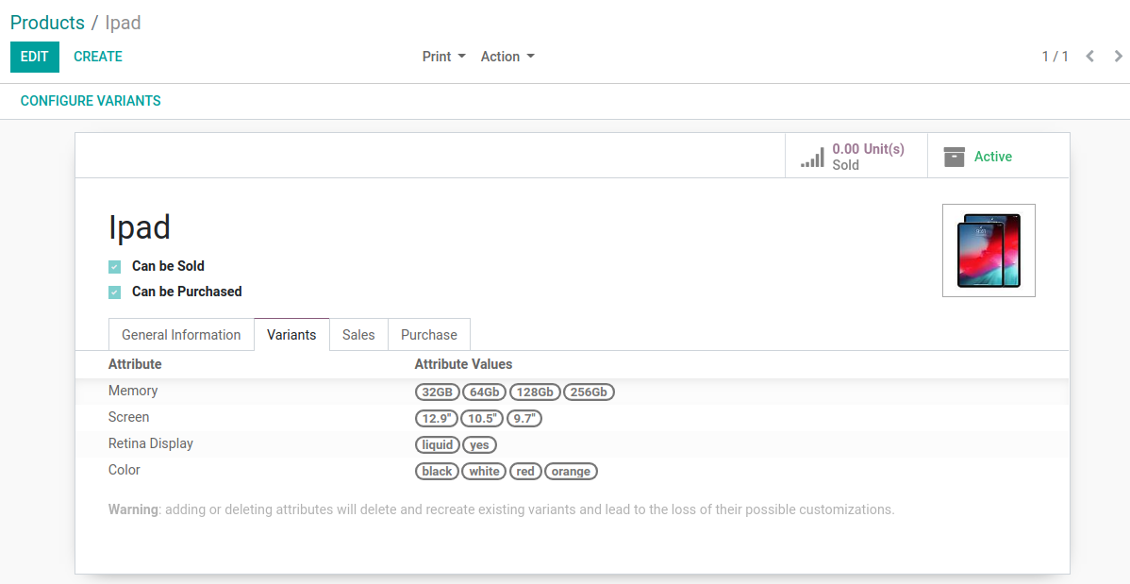
Real-time pricing in any sale
Advanced pricing as a base for Odoo pricelists
Special case: independent variant prices
Sometimes, variant prices don't have a strict correlation with template prices. In such a case there is a need to assign an own product price disregarding attributes and template core settings. The tool let you reach that goal. To configure independent price:
- Define a template price as zero
- Do not assign coefficients for attributes, but you may define surpluses (e.g. a product has 2 attribute values, one of which has 5 Euro extra)
- Make an own variant surplus as a final variant price (e.g. 100 Euro)
- The tool would calculate a final variant price as: 0 + 5 + 0 + 100 = 105 Euro. It is fully independent from a template price.
Super support team
This module is awesome, had a few minor things to fix and the dev team fixed it and update their modules within 2hours. Super service!
Quick response, helpful team. Just what I needed.
I'm very happy for finding this module. And also the support team is very prompt. Super satisfied with customer support. Will definitely check out for more modules from this reputable company. Cheers!
Bug reporting
If you encounter bugs or inconsistent behavior, do not hesitate to contact us. We guarantee to provide fixes within 60 days of purchase and are intensely interested in improving our tools even after this period.
You do not need a phone number or credit card to contact us. You should only pass a short email sign-up, which does not take more than 30 seconds.
Please include as many details as possible in your request: screenshots, Odoo server logs, a full description of how to reproduce your problem, and so on. Usually, it takes a few business days to prepare a working plan for an issue (if a bug is confirmed) or provide you with guidelines on what should be done (otherwise).
Public features requests and module ideas (free development)
We are strongly motivated to improve our tools and would be grateful for any feedback. If your requirements are of public use and might be efficiently implemented, the team will include those in our to-do list.
Such a to-do list is processed regularly and does not assume extra fees. Although we cannot promise deadlines and final design, it might be a good way to get desired features without investments and risks.
You do not need a phone number or credit card to contact us. You should only pass a short email sign-up, which does not take more than 30 seconds.
The technical core to synchronize your cloud storage solution with Odoo
398€The tool to build deep and structured knowledge base for internal and external use. Knowledge System. KMS
248€The tool to set up KPI targets and control their fulfillment by periods
The tool to automatically synchronize Odoo attachments with OneDrive files in both ways
487€The tool for time-based service management from booking appointment to sale and reviews
The tool to automatically synchronize Odoo attachments with Google Drive files in both ways
487€The tool to administrate vendor data about products, prices and available stocks
The tool to motivate vendors to prepare product catalogue in your Odoo